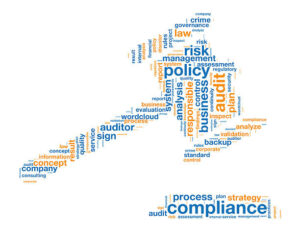
4 things your boss can’t legally do in Australia
What are the things your boss can’t legally do in Australia? It’s one of the most asked questions online, and one that we at A Whole New Approach are asked often, too. The frequency with which this question is asked clearly tells us that some employers are, lo and behold, taking advantage of Australian workers. This is hardly a surprising or controversial statement, but underneath the surface, the issue is far more nuanced than you might think. 4 things your boss can’t legally do in Australia will be interesting reading
One of the reasons why some workers are taken advantage of is that there are so many things your boss can’t legally do in Australia, but in other countries, are standard practice. This could include shady practices like denying employees leave or paying them cash in hand. Also, dismissing them without giving a reason or notice, among many other dubious practices. Fortunately we have the Fair work regime (commission and ombudsman ) to reserve workers rights. Work safe keep toxic workplaces under control.
And some of these practices have become prevalent in Australia – a by-product of the increasingly global nature our economy.

Without migrant workers, Australia suffers
Without overseas business investment and immigration, Australia would no doubt be a far less prosperous and culturally rich nation. In fact, foreign companies and workers provide the backbone for much of our economy. 62 percent of the Australian stock exchange is foreign owned. Small businesses, in particular, rely heavily on a steady influx of foreign workers.
This fact was never more highlighted than during the COVID-19 pandemic. For almost two years, border closures saw Australia’s skilled migration program came to a grinding halt. This resulted in the devastating skill shortages experienced by many sectors of the economy, particularly hospitality, agriculture, retail and construction.
Now, thankfully, our borders are once again open, and the much-needed influx of skilled foreign workers has recommenced. However, Australia is still facing a labor shortage. There are now 1.5 million temporary migrants in Australia, compared to almost 2 million in 2019.

Why there are so many things your boss can’t legally do in Australia
Overseas companies and workers therefore bring to Australia the critical investment and skills needed for our economy to prosper. An inconvenient truth, however, is that they also sometimes bring cultural workplace practices that flout our laws.
Australia’s workplace protections are some of the most comprehensive in the world. Our laws offer protections that safeguard the fundamental rights of workers. Elsewhere in the world, in nations like China, for instance, or even Western democracies like the United States, these worker protections are glaringly lacking. (no unfair dismissal laws in the USA)
For instance, Australia has a vast and complex Modern Award system that outlines the minimum pay rates and conditions of employment. In fact, there are more than 100 industry or occupation awards, each providing protections that cater to specific circumstances. In the United States, or China, there’s nothing of the sort.
Things your boss can’t legally do in Australia are routine in other countries
Thanks to Australia’s robust workplace protections, there are countless things your boss can’t legally do in Australia, but in other countries, are standard practice. Despite our laws, some foreign workers and business owners may deem certain underhanded practices acceptable. After all, it is in their country.
Let’s look at some of the top things that your boss can’t legally do in Australia, but may be acceptable elsewhere in the world.

Things your boss can’t legally do in Australia #1: Deny you paid holiday leave
In Australia, full-time and part-time employees are entitled to four weeks annual leave, based on their ordinary hours of work. Australian workers are also entitled to long service leave, which is determined by relevant state or territory laws.
In New South Wales, for instance, long service leave applies to most employees who are full-time, part-time or casual. Working for the same employer for ten years entitles you to two months of paid leave.
Let’s compare Australia’s paid leave entitlements to those of China and the United States. Chinese workers have one of the lowest annual holiday leave entitlements in the world. Employees who have accumulatively worked for 1 to 10 years are entitled to just five days per year. This increases to 10 days after 10 to 20 years cumulative work, and 15 days for more than 20 years of work.
The United States, meanwhile, doesn’t even have statutory minimum paid holiday leave, at a federal or state level. However, according to the US Bureau of Labor Statistics, 77% of private employers offer paid holiday leave to their workers, with full-time employees earning an average of 10 days per year after a year of service with their employer. This increases to 14 days after five years of service, 17 days after 10 years, and 20 days after 20 years.

Things your boss can’t legally do in Australia #2: Make you work in unsafe conditions
Chinese companies are notorious for often subjecting their employees to inhumane working conditions. Interestingly, many of these companies produce goods and services for American corporations.
A particularly shocking story that came to light in 2018 was the “nightmare” conditions at several Chinese factories that produced toys for Hasbro and Disney, and sold at major American retailers like Walmart and Costco. Workers at these factories were forced to work up to 175 overtime hours per month. They were also denied critical safety equipment, which meant many often handled chemicals like benzene, which has been linked to poisoning and leukemia.
This is clearly an extreme example of unsafe workplace conditions, and definitely one of the things your boss can’t legally do in Australia. However, in places like China and elsewhere in the world, nightmare scenarios like this don’t happen in isolation.
When it comes to performing overtime, Australia’s workplace laws ensure workers aren’t subject to unreasonable overtime requests from their employer. And when they do work overtime, they of course must be compensated according to the terms laid out in their award, enterprise agreement or other registered agreement.
And when it comes to working in unsafe conditions, Safe Work Australia provides protections for workers. For instance, if your work becomes unsafe, you have the right to stop or refuse to carry out the work if there is a serious risk to your health or safety. Protections also extend to things like bad weather. For instance, if you work outdoors and it starts raining, or if gets too hot. Your employer must have measures in place to manage the risks to your health and safety.

Things your boss can’t legally do in Australia #3: Pay you less than you are legally entitled
Perhaps the most stark comparison between the employee protections of Australia and the United states is the legal minimum wage of both nations. At the start of the 2022-23 financial year on 1 July, the Fair Work Commission raised Australia’s minimum wage by 5.2%, to $21.37 per hour. The minimum wage for those covered by a Modern Award also increased by 4.6 per cent. In the United States, the legal minimum wage is a paltry $7.25 per hour.
Part of the reason for this is that America has a tipping culture. Defenders of their current minimum wage argue that its recipients often earn considerably more through tips. In Australia, however, this tipping culture is far less omnipresent. Hence, our minimum wage is far higher, and we also have robust laws that protect employees from underpayment.
If you work as a waitress at a café, for instance, your boss can’t simply pay you less than minimum wage because you also receive tips. This isn’t a valid reason to decrease pay, and our laws ensure businesses that underpay their staff are significantly punished.
A recent example is a Sydney café that failed to pay its staff minimum casual wage entitlements, in addition to penalty rates for weekend and public holiday work. The café faces a fine of up to $33,300 for each instance of underpayment to an employee. Its two owners also face personal fines of up to $6,600 for each instance.

Things your boss can’t legally do in Australia #4: Dismiss you without a valid reason
Dismissing you without a valid reason is one of the things your boss can’t legally do in Australia. In many other countries, however, workers simply don’t have this right. In the United States, for instance, employers can dismiss an employee for any legal reason, without having to establish “just cause” for termination. They can also do so without warning.
In Australia, the Fair Work Commission states that an employee must be dismissed for a reason that is “sound, defensible or well founded.” And a reason can’t be valid if it is “capricious, fanciful, spiteful or prejudiced.”
Australia also has robust laws in place that protect employees from unfair or unlawful dismissal. An unfair dismissal is when an employee was terminated for a reason that was “harsh, unjust or unreasonable.” While an unlawful dismissal is when an employee was dismissed for a protected reason. For instance, because of their race, sex, or disability. Or because they had a temporary absence from work due to illness or injury.
Is your boss guilty of illegal workplace practices?
Sometimes, a boss or manager who is used to the often dubious practices of their native country may think those practices are acceptable in Australia. If your boss has brought any unlawful practices into your workplace, you have the right to avail one of many legal instruments to ensure it comes to an end. You could also claim compensation for having been subjected to these unlawful practices.

Conclusion to 4 things your boss can’t legally do in Australia
There are so many things your employer can’t legally do in Australia that we haven’t mentioned in this article. Its partly about a reasonableness test. What is and what isn’t a lawful instruction? Is it a variation of your employment contract? It can be complex, do you suffer in silence? or do I do something about it? Self respect is important. Anything to do with workers rights, casual employment, toxic workplaces call is today
So if you would like to have a completely free, no-obligation discussion about your concerns.
Give us a call today on 1800 333 666. We can help you understand your rights and how you can take action to protect your rights.






